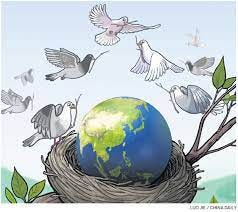As humans, our assumptions, understandings, and perspectives are rooted in experiences in particular nations and social locations. Therefore, what is understood to be true from the vantage point of one socially bounded horizon can be seen as totally nonsensical from the perspective of another. This cultural difference becomes ideological when particular social groups marshal evidence and ideas in defense of their particular understandings.
Freedom fighters or terrorists?
As a young college teacher in the 1980s, I observed that informal discussions among faculty frequently made reference to the cultural and ideological sources of understanding, noting that “one person’s freedom fighter is another person’s terrorist.” I found the oft-repeated phrase disturbing, as reflecting a lazy-man’s epistemology, entirely inappropriate for persons presumably dedicated to the academic life. It seemed to me that the cultural and ideological distortions to understanding were a challenge to …


